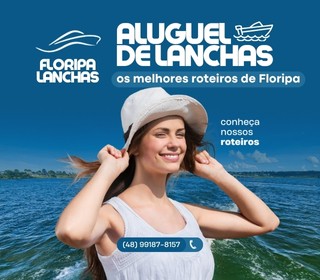Citizens' commitment to waste recycling is one of the important indicators of quality of life in Florianopolis. Held by Companhia Melhoramentos da Capital (Comcap) since 1986, the selective collect, along with recycling, is an effective way of treating waste. With it, the amount of garbage sent to the sanitary landfill decreases, increasing the useful life of the place. In addition, it helps to save natural resources, offers better working conditions for waste pickers and generates new jobs in recycling industries. Currently, all the selective material collected is donated to Associations of Collectors, which separate and sell, generating income for their families. Consult the number (48) 3271-6838 which day of the week the truck passes in your neighborhood in Florianópolis.
what can be recycledPaper: Newspapers, magazines, notebooks, sketch sheets, wrapping paper, bread bag, Tetra Pak packaging, among others. Glass: Bottles, jars, food and perfume bottles, car windows, among others. Metal: Wire, wire, beverage and food cans, nails, screws, iron, bronze, zinc and copper objects. Plastic: Water and soda bottles, food jars, bottles of hygiene and cleaning products and toys. For the safety of collectors, all material separated for recycling must be clean. Glass and sharp objects should be wrapped in double sheets of newspaper.
A way to facilitate the work of those who want to recycle in Florianópolis is the application recycle map, available for Android phones. Created by students from the municipal public network of the capital, the software allows locating the disposal points closest to home, in addition to enabling users to collaborate to indicate new locations. Even materials that are difficult to dispose of - such as electronics, batteries, expired medicines and even used cooking oil - have information so that residents can carry out recycling correctly in Greater Florianópolis.
ADVERTISING
What cannot be recycled?Waste: Cigarettes, paper and sanitary pads, tissue, disposable diapers, greased papers. Specific Products: Mirror, leather, ceramics, adhesive tapes, steel sponge, television tubes, lamps, styrofoam, stickers and photographs, refractory glass of microwave pot and dish, dishes, disposable shaver, clip and staple, socket, steel, carbon paper, among others.
What to do with organic waste?Organic waste must be sent to the common collection. Another alternative is to transform fruit, vegetable and food leftovers into organic fertilizer, composting. This technique has become popular in Brazil and especially in Florianópolis, as it uses fertilizer for the production of food, flowers, plants, spices, seedlings, etc. So much so that in 2017 the federal government launched a primer with the objective of clarifying and ending myths about composting, in order to use the life potential of organic waste for the daily life of the population. The booklet cites two examples implemented in Florianópolis. The first is the Baldinhos Revolution, a community management project for organic waste in the Monte Cristo neighborhood. Due to problems such as the excess of waste thrown on the streets and the narrow roads that make collection difficult, the community mobilized to seek a solution. Until the idea of separating food leftovers in buckets with lids came up, with the aim of recycling through composting in the community itself. The distribution of buckets started with five families and grew as the participants themselves publicized the project, reaching 200 families who left their waste at 43 voluntary delivery points. According to the organization, the format recycles 12 tons of organic waste per month and produces three tons of organic compost per month, encouraging the production of food in the community and preventing the proliferation of rodents due to the garbage scattered on the streets. Learn more. Another Florianópolis project mentioned in the Ministry of the Environment booklet is carried out by sesc. The entity began to manage organic waste at the three units in Florianópolis (Narrow, Prainha e cacupé) in 2012. The collected waste was sent to a single composting yard, located in the Cacupe hotel, with the aim of reducing costs. Since then, the routine has been created of sending around 20 to 35 canisters daily, ranging from 50 to 60 liters, full of organic waste collected at the Estreito and Prainha units to the patio in Cacupé. Sesc estimates that in the first three years of execution, the project treated 670 tons of waste, generating 210 tons of organic compost that were donated to city halls, schools and communities in the region. Read more about the project. Do you want to do it too? Here are the steps for composting: Place alternating layers of food scraps, grass, dead leaves and soil in a bottomless can until full. The last layer should receive dirt, grass or dead leaves; Keep the material moist and mix twice a week so that the air reaches the microorganisms; After 90 days the fertilizer is ready. Do not put meat in the organic fertilizer mix
ADVERTISING
What to do with frying oil?A lot of people still don't know, but domestic cooking oil can also be recycled. What used to be dumped in the sink drain, toilet or in manholes, contaminating the environment and causing accidents, is now reused thanks to the ReÓleo project. To participate, you must take the used oil inside a pet bottle (soft drink) to the nearest Voluntary Delivery Point (PEV). The initiative is from the Industrial Commercial Association of Florianópolis (ACIF), which since 1998 has collected the material and sent it to a company in Paraná. As for merchants and fast foods, who discard significant amounts, the suggestion is to contact entities licensed by the competent body in the environmental area to give the appropriate destination to the waste. This can be done by e-mail reoleo@acif.com.br. The product is used as raw material for the production of fertilizers, release agent for civil construction and chain saw oil. In addition, it can also become soap. There are eight collection points in Florianópolis: at the Galo Service Stations and at the Acif and Comcap offices. Interested condominiums can also register for the project. To do so, just contact Acif by phone (48) 3224-3627 or website. Tip: Deliver the waste at Acif Regional Ingleses - Rua Intendente João Nunes Vieira, 1683 - Ingleses; at CTRes Comcap - Admar Gonzaga - Itacorubi Highway. Or see the Galo Stations closest to your home and preserve. Shopping Itaguaçu: 3246-2466 Atilio Pedro Pagani: 3242-5490 Saco dos Limões: 3333-5098 Barra da Lagoa: 3232-3284 Aririú (Palhoça): 3342-0265 Rio Tavares: 3237-4432 Estreito: 3244-0057 Lagoa da Conceição I : 3232-0156 Lagoa da Conceição II: 3234-4780 Almirante Lamego (Downtown): 3225-4666





